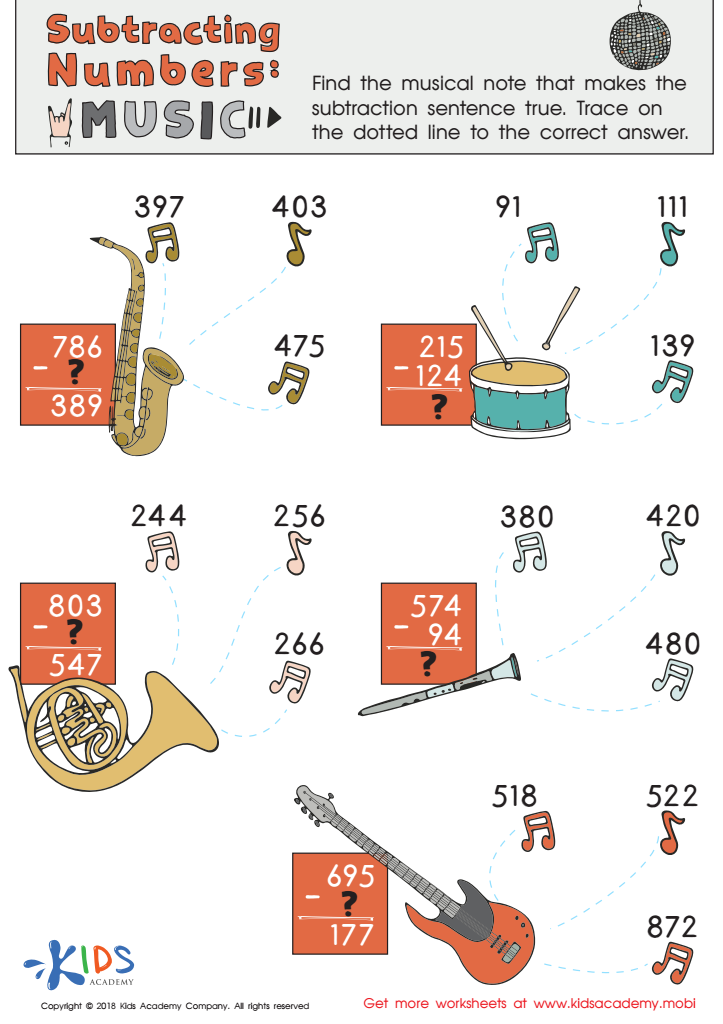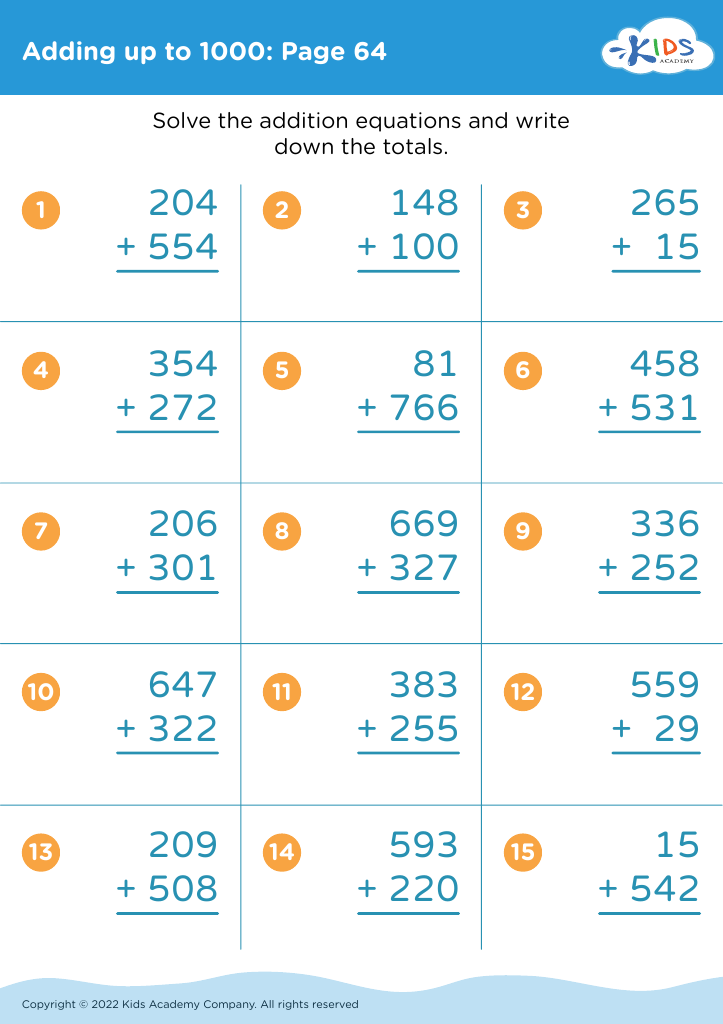Developing critical thinking Addition & Subtraction Worksheets for Ages 4-8
3 filtered results
-
From - To
Our "Developing Critical Thinking Addition & Subtraction Worksheets for Ages 4-8" provide young learners with a fun and engaging way to build their math skills. These specially designed worksheets go beyond rote learning, encouraging children to develop their critical thinking abilities as they solve various addition and subtraction problems. Each activity is crafted to promote logical reasoning, pattern recognition, and problem-solving skills, fostering a deeper understanding of mathematical concepts. Perfect for both classroom and home use, these worksheets help make learning an adventure, setting a solid foundation for future academic success in a supportive, enriching environment.


Subtracting Numbers: Music Worksheet
Developing critical thinking skills in addition and subtraction for children ages 4-8 is crucial for several reasons. Critical thinking goes beyond rote memorization; it involves analyzing, reasoning, and problem-solving, which are foundational skills for academic and life success. Young children are naturally curious, and early math skills offer a structured way to channel that curiosity into logical thought processes.
At this developmental stage, kids are learning how to approach problems methodically. Introducing addition and subtraction helps them understand numerical relationships and patterns, fostering a sense of order. This form of logical thinking extends to other areas, aiding in reading comprehension and science exploration.
Moreover, early exposure to mathematical concepts builds confidence and reduces math anxiety in later years. When children see math as a series of solvable puzzles instead of insurmountable challenges, they develop a positive attitude that encourages continuous learning.
Parents and teachers who focus on critical thinking in math enable children to tackle real-world problems. For example, understanding addition and subtraction helps young learners make decisions based on evidence, manage allowances, or even play fair in games. This skill mastery lays the groundwork for more advanced analytical abilities, beneficial in academia and daily life.



 Assign to My Students
Assign to My Students


















